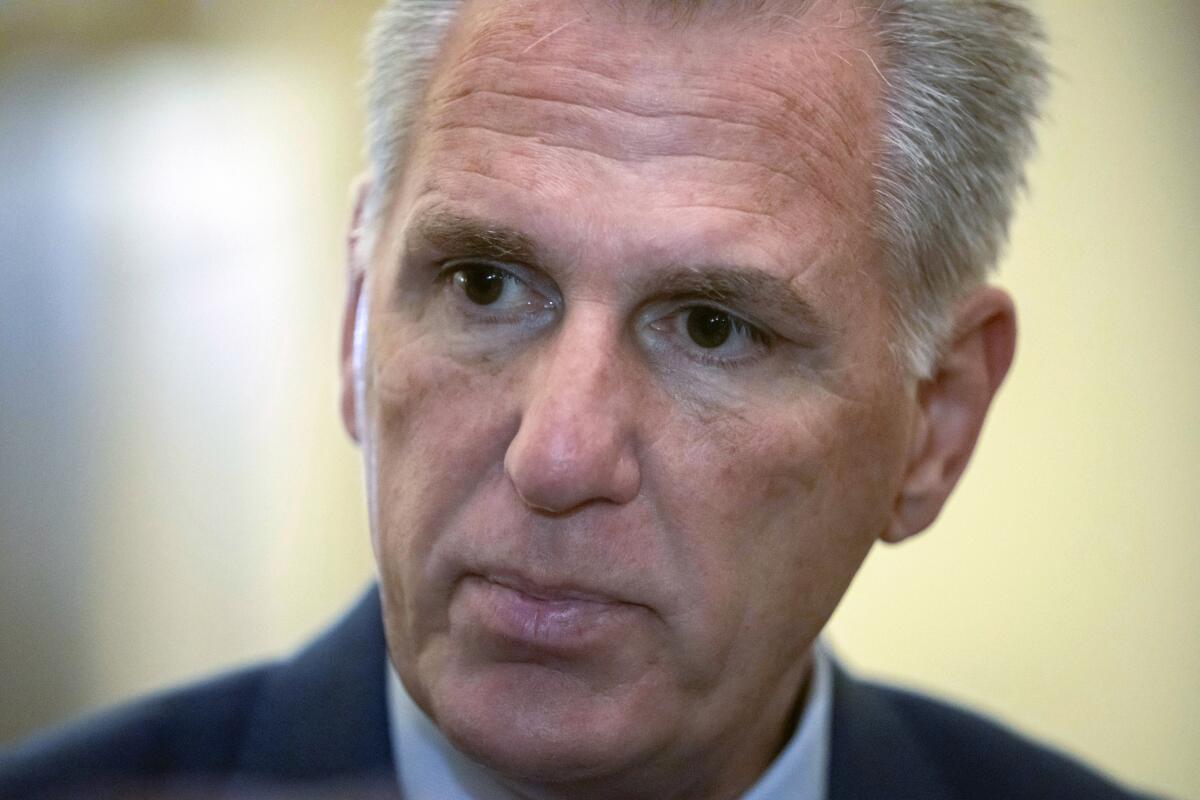White House prepares for government shutdown.

WASHINGTON – Friday happens to be the day that the white house is preparing to direct federal agencies to get ready for a shutdown after House Republicans left town for the weekend with no viable plan to keep the government funded and avert politically and economically costly disruption of federal services.
The likelihood of a federal shutdown occurring after September 30 appears highly probable unless Speaker Kevin McCarthy can persuade the defiant hard-right faction of Republicans to permit Congress to pass a temporary funding measure while they address the annual federal spending plan. However, the House is not scheduled to reconvene until Tuesday, leaving just five days to resolve this standoff.
While McCarthy attempted to avert the government shutdown, it became evident that a group of influential members aligned with the White House remained steadfast in supporting the decision, a stance he considered detrimental to their overall position.
Related News: News Update: The Congolese government Rejects claims of a coup attempt
The impasse with House Republicans regarding government funding jeopardizes several critical activities, including military and law enforcement personnel salaries, food safety programs, food aid initiatives, air travel operations, and passport processing. It also has the potential to disrupt the U.S. economy significantly.
As the new fiscal year begins on October 1 with no funding solution in place, the Office of Management and Budget (OMB) in the Biden administration is preparing to recommend that federal agencies revisit and update their shutdown plans. This initial step indicates that federal employees might receive notices of potential furloughs in the upcoming week.
Also Read: Latest Update: See part of Supreme Court fire razed down today
President Joe Biden has promptly attributed the impending shutdown to House Republicans advocating for spending reductions beyond those outlined in a June agreement. This agreement also suspended the legal limit on government borrowing authority until early 2025. During a recent speech in suburban Maryland, Biden expressed his frustration, accusing House Republicans of reneging on their commitments and threatening further budget cuts and government shutdowns.
McCarthy faces immense pressure for severe spending cuts from a handful of hard-right conservatives in his caucus, halting his ability to lead the chamber. Many on the right flank are aligned with Donald Trump — the Republican frontrunner to challenge Biden in the 2024 election — who opposed the budget deal the speaker reached with Biden earlier this year and is trying to dismantle it.
Trump has encouraged House Republicans to remain steadfast in their opposition to federal spending.
Also Read: Fake News; Meaning And 5 Examples
Led by Trump ally Rep. Matt Gaetz of Florida, the conservative wing has effectively taken control of the House’s deliberations, openly challenging the speaker.
Late on Thursday, the hard-right faction pressed McCarthy to consider their proposal to abandon plans for a temporary funding measure (a continuing resolution, or CR) and instead focus on passing the 12 separate bills needed to fund the government.
In response, House GOP leadership announced their intention to begin processing a set of four bills covering Defense, Homeland Security, State and Foreign Operations, and Agricultural departments, with a vote scheduled for Tuesday when lawmakers return. Progress on some bills had been delayed by the same conservatives now advocating for their immediate passage.
Also See: News; Nigerian Airlines Face Insurance Premiums
Gaetz criticized McCarthy for sending lawmakers home for the weekend, suggesting that any progress made was despite McCarthy’s actions and referred to him as “pathetic.”
Gaetz and his supporters argue for a more extensive legislative effort, even if it leads to a government shutdown, as they pursue significant reductions and spending cuts.
The House Rules Committee announced plans to convene on Friday afternoon to begin preparations for these bills, which traditionally require weeks of floor debate and numerous amendments but are now set for accelerated consideration next week.
It has been a challenging week for McCarthy, who unsuccessfully attempted to advance a typically popular defence spending bill, which was defeated twice in embarrassing floor votes. McCarthy appeared to attribute the bill’s defeat to fellow lawmakers he described as wanting to disrupt the legislative process.
While some agencies had approved funding, it was a partial shutdown, with the Congressional Budget Office estimating a $3 billion cost to the U.S. economy. Although substantial, this represented just 0.02 per cent of U.S. economic activity in 2019.
A government shutdown can affect various parts of the economy and pose individual challenges. It may result in unpaid military and law enforcement officials, depleted disaster relief funds, delayed clinical trials for new drugs, reduced access to care through Head Start, backlogged environmental and food safety inspections, and the potential cutoff of food aid for millions through the Women, Infants and Children program.
Air traffic controllers went unpaid during the previous shutdown, although they largely continued working without pay. Visa and passport applications would remain unprocessed during a government closure.
The U.S. Travel Industry Association estimated that the travel sector could lose $140 million daily in a shutdown.
Notably, despite the economic concerns, the S&P 500 stock index climbed by 11.6 per cent during the last government shutdown, indicating limited overall economic damage.
